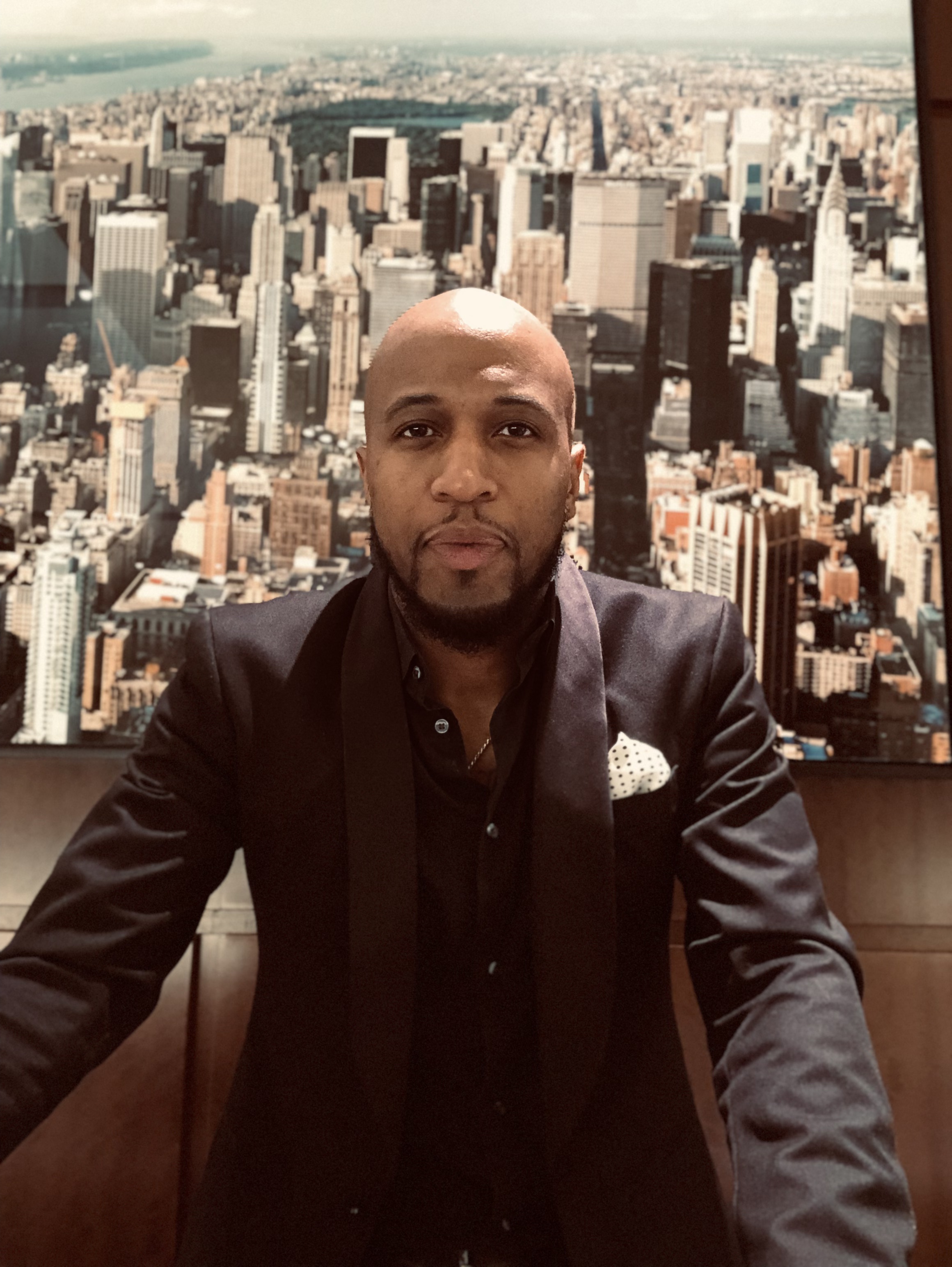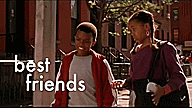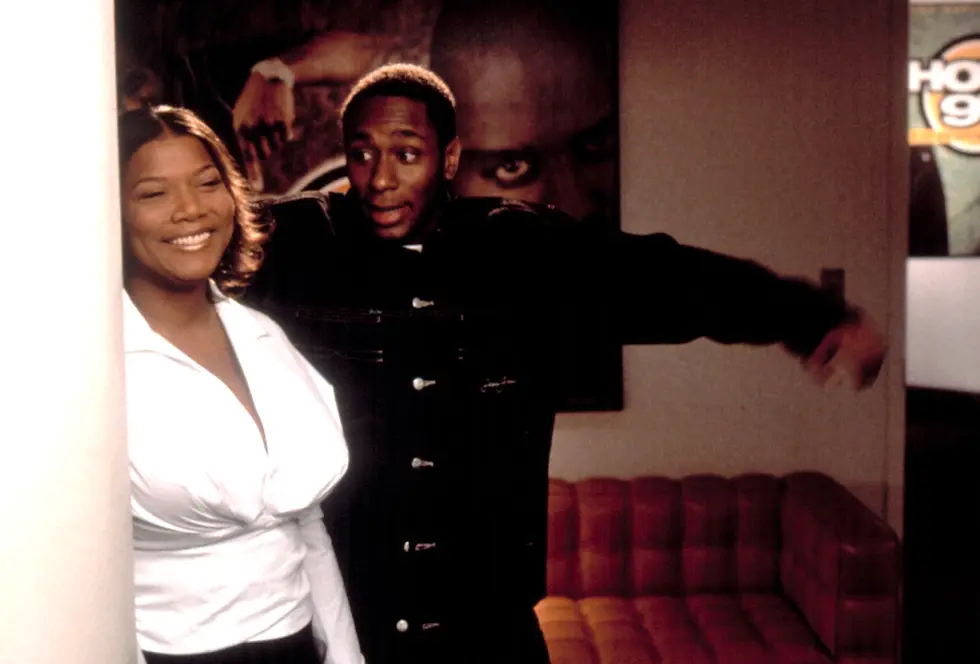20 years later, 'Brown Sugar' is still a love letter to the Golden Age of Hip-Hop
- qliveontheair

- Oct 15, 2022
- 7 min read
Updated: Oct 16, 2022

Tuesday, (Oct. 11) marked the 20th anniversary of Brown Sugar, a film about childhood friends whose love blossoms in the warm embrace of hip-hop.
Brown Sugar is a film that, like a good hip-hop song, hits differently depending on what age you are when you experience it. The classic 2002 romantic comedy came out in October, 20 years ago, and what was once a comforting antidote to a rom-com genre saturated in whiteness with a side of hip-hop nostalgia, has now held up as a smart, sexy, exploration of the When Harry Met Sally friends-turned-lovers trope while remaining a sharp meditation on rap music’s mainstream dominance. The conflicting crux in Brown Sugar is the direction of hip-hop and what this would mean for the two lovers who’d grown and matured just as the genre had. The movie tackled so much in so little time: the commercialization of the hip-hop industry, from labels to journalism; insecurities about relationships with best friends; and a surprisingly nuanced approach to what happens when relationships fall apart.
"When did you fall in love with Hip-Hop?"
With Brown Sugar, hip-hop was both a main and supporting character to the highs and lows of childhood best friends Sidney Shaw (Sanaa Lathan) and Andre Ellis (Taye Diggs), capturing the moments that marked the different shifts in their relationship. As kids, watching music journalist turned XXL editor-in-chief Sydney Shaw (Sanaa Lathan) slowly realize when she really fell in love with hip-hop aka her best friend, A&R executive Andre “Dre” Ellis (Taye Diggs) felt like an awakening; a glimpse into the grown up world we only dreamed of and a blueprint of a romance to aspire to.

What I love most about Brown Sugar is that the entire film is an ode to hip-hop as a culture. Hip-hop is this beautiful metaphor for Dre and Sydney’s relationship, with Syd talking about hip-hop the way you’d talk about a journey or relationship with a loved one. Aesthetically, the film falls almost in line with other black films we’ve seen that weren’t necessarily about hip-hop, but still had a hip-hop feel. It’s just a specific, inner-city vibe that is unique in its own context and has its own heartbeat.
The Story
The film’s opening scenes include interviews with hip-hop heavyweights such as Common and Fab 5 Freddy; Slick Rick and Doug E. Fresh team up for a freestyle; and Mos Def raps the movie’s title song over Kanye West’s beats. Hitting on all aspects of the culture, Brown Sugar even highlights hip-hop journalism.
Childhood friends Dre (Diggs) and Sidney (Lathan) meet in 1984 and bond over seeing a young Slick Rick freestyle in a New York City park. Then the story flashes forward: Sidney is now an editor at hip-hop bible XXL and Dre is an A&R executive at the fictional Millennium Records. Together, they try to recapture the purity of their youth via their love of hip-hop. Unfortunately, Dre has recently married a woman who doesn’t understand his formative connection with rap music (Nicole Ari Parker). She’s upset when he quits his comfortable corporate job after they assign him a new black-and-white duo called the Hip-Hop Dalmatians, which the label thinks will gain traction on MTV. Dre leaves to start his own independent label because he knows he’s above tending to a group that flipped Michael Jackson’s “The Girl Is Mine” into “The Ho Is Mine.” Moreover, Dre’s love/hate relationship with hip-hop parallels and drives his love for Sidney, and his quest for something real. It’s the same way Mos Def’s character Chris opens himself to the possibility of signing a record deal and partnering with “the man” to get his music to the masses.
Sidney is reconnecting with her rap roots as well. She’s in the midst of writing a book called I Used to Love Her, named after the immortal Common track, which she describes as her “love letter to hip-hop.” At the start of Brown Sugar, we see her conducting interviews for the book, and it’s one of the first signs that the movie understands this music. “When did you fall in love with hip-hop?” she asks legends like Method Man, Kool G Rap, Black Thought, and Common. Sidney never discusses the genre unnaturally. Her later conversation with Dre about selling out in hip-hop doesn’t sound pretentious or shallow or false; in fact, their discussion still seems relevant today.
They both reach their goals—Dre builds his label and Sidney finishes her book—and they declare their love to each other live on hip-hop radio mainstay Hot 97 (“The Angie Martinez Show,” for the heads). “You are the perfect verse over a tight beat,” Dre tells Sidney earlier in the movie. Out of context, it’s the type of corny one-liner that would fit in J. Cole’s “Wet Dreamz,” but Diggs and Lathan have so much easy chemistry, it inspires laughs instead of cringing.


The Prelude
In the fall of 2002, Jay-Z, Nelly and Eminem were the world’s biggest rappers with 50 Cent on the horizon. The Los Angeles Lakers, led by Shaquille O’Neal and Kobe Bryant, were about to embark on their third straight championship season. And Hollywood was at the tail end of its Black rom-com golden years. Love Jones, the jazzy flick about a writer who fell in love with a photographer, came out in 1997. The Best Man, about a reunion among friends that falls apart, came out in 1999, the same year the coming-of-age story The Wood was released. But by 2002, Hollywood seemed less interested in making as many Black rom-coms as in years past.
The movie was the brainchild of Screenwriter. Michael Elliot. Elliott heard Mary J. Blige's “Seven Days” on the radio in 1998, a classic record over neo-soul production of a platonic friendship that becomes something more. “I never thought that I would fall in love with you / But since the day we kissed I knew it had to be you / I never thought we would be together / I can’t believe I just made love to you,” she sings." The lyrics, “Now what are we gonna do?” became the end of the first act of Elliot’s new script. He sold the movie, initially titled Seven Days, to 20th Century Fox for $250,000. After a few years of development and delays, the final version of Brown Sugar would take shape. The film centers on two lifelong friends, hip-hop fans, and young professionals who can’t seem to shake the feelings they have for each other, no matter how hard they try. And like the perfect verse over a dope beat, the various elements of the movie came together to create something memorable.

Meanwhile, Rick Famuyiwa was a young director coming off his first hit, 1999’s The Wood, where he melded a story of black friendship and coming of age with the realities of life in Inglewood, CA, in the 80s and 90s. Famuyiwa tweaked the script and cast The Wood alums Taye Diggs and Sanaa Lathan in the starring roles. Both Diggs and Lathan had established themselves as signature romantic leads of the late ’90s/early ’00s—Diggs with How Stella Got Her Groove Back and The Best Man, Lathan with Love & Basketball—though their dominance is often diminished, since rom-coms with primarily black casts are rarely shown the same love as white ones.
Love stories featuring characters and storylines that better represented black Americans flourished in the 90s with films like Boomerang (1992) and The Inkwell (1994). "It was a really interesting time, because the black romantic comedy became a genre unto itself," Famuyiwa said. During the black rom-com boom, we got George Tillman Jr.'s Soul Food in 1997, Malcolm Lee's The Best Man in 1999, and Gina Prince-Bythewood's Love & Basketball in 2000. These films featured complex characters that found love in intimately familiar, black places: Brown Sugar within the world of hip-hop; Love Jones in Chicago's 90s spoken word scene; The Inkwell in Martha's Vineyard's historically black Oaks Bluff community. It is frustrating to think that back then, studios didn’t think a Brooklyn-based love story about Black professionals fumbling their way through friendship lows and career highs — all while hip-hop is their soundtrack — could be universal, but that’s exactly what Famuyiwa and co-writer Michael Elliot accomplished.
Under Famuyiwa’s direction, Brown Sugar doesn’t feel out of its element while interacting with real-life hip-hop icons. He fills out the supporting cast with Queen Latifah, as Sidney’s cousin Francine, and Yasiin Bey (fka Mos Def), who plays a taxi driver/rapper that Dre scouts and builds his label around. Both add a layer of authenticity to the film.

While the romantic tension between Sidney and Dre drives the film, the rest of the cast make Brown Sugar special. Mos Def (an aspiring rapper named Cavi) and Queen Latifah (Sidney’s cousin Francine) have their own dynamic on-screen interactions, especially once Cavi develops a crush on Francine. Boris Kodjoe plays NBA star Kelby Dawson, who tries to woo Sidney, while Kodjoe’s real-life wife Nicole Ari Parker stars as Reese, a successful entertainment lawyer and Dre’s fiancée. Then there’s the Hip-Hop Dalmatians, an interracial rap duo that’s a parody of all of the simplistic buffoonery that can dominate popular music.
The care shown to the genre is amplified through the movie’s soundtrack, which includes the Roots, Eric B. & Rakim, and an Erykah Badu and Common duet. The soundtrack’s star, naturally, is Yasiin Bey, who anchors multiple songs including the title track. Produced by a young Kanye West, “Brown Sugar” features a soulful sample of Norman Connors’ “Invitation” and Bey rapping smoothly from the perspective of his character. His bars feel true to both the early days of hip-hop and the genre circa 2002, and they’re strong enough that it’s somewhat believable when Dre makes a drastic career change based on the song.
Conclusion
Even while it’s chock-full of famous cameos, good music, and witty banter, the movie never loses sight of the love story. Brown Sugar made it clear that hip-hop would go through growing pains and that sometimes it would be unrecognizable from what it was in its beginnings. But the film also made it known that the genre would always remain constantly glued to the people who’d made it a reality. Dre and Sid were good apart but were even better together.
The success of bona fide hip-hop at the film’s end as Cavi's (Mos Def fka Yasiin Bey) single is finally given radio play, mirrors the growth and final transition of Sid and Dre’s relationship, from being a close friendship to a union between adults who had reached a point of realization. It shows that while hip-hop craves youth, it is still able to evolve and be full grown, and continue to reflect the lives of the people it came from. As far as hip-hop, it will always be something that is deeply entrenched in the black experience. One of the most innovative things about the genre is its chameleon ability to change, grow, mutate, and become a hybrid creation of all things that serve as a testament to the ingenuity of radical black creative expression.
Refreshingly, this movie isn’t a fairytale—the characters are down to earth and flawed. And yet, Brown Sugar continues to be left out of the rom-com pantheon, like most black love stories. But Famuyiwa did something even harder than make a great romantic comedy: He presented hip-hop as more than a tagline.
"You are the perfect verse over a tight beat."




Comments